医科学専攻
Cell Proliferation(United Centers for Advanced Research and Translational Medicine)細胞増殖制御(附属創生応用医学研究センター)
STAFF
Professor
-
Ishii, NaotoProfessor. 石井 直人 教授 (兼任)

Other Faculty / Staff
-
Hosogane, Masaki
Assistant Prof. 細金 正樹 助教 -
Watanabe, Yasuaki
Assistant Prof. 渡辺 靖章 助教
CONTACT
TEL:+81-22-717-8226
E-MAIL:nakayak2*med.tohoku.ac.jp
(「*」を「@」に変換してください)
OUTLINE
From a single fertilized egg, our bodies repeatedly multiply and differentiate to form a single individual. With the passage of time, the individual itself and its cells age. We have been studying mechanisms of cell cycle and protein degradation to find the answer to how the fate of these multicellular organisms is determined. And we are trying to elucidate the mechanism of carcinogenesis, which is thought to be an abnormality of the cell cycle. Recently, we have been able to tackle carcinogenesis and cancer progression from a new perspective by utilizing comprehensive analysis data obtained from tumor samples.
From another aspect, our body is composed of various macromolecular compounds, among which proteins play a major role as functional molecules. Proteins are produced by the translation of mRNA transcribed from the genome. How the transcription is initiated has been studied for a long time. Research on proteolysis has also revealed that our cells have the ability to break down unwanted proteins when appropriate. We began our efforts to understand when proteins are translated.
私たちの体は、一つの受精卵から増殖と分化を繰り返し、一つの個体として成り立っています。そして、時間の経過とともに個体そのものも細胞も老化していきます。この多細胞生物が持つ運命は、どのように決定されているのか、その答えを探して細胞周期研究・タンパク質分解の研究を行ってきました。そして細胞周期の異常と考えられる発がん機構の解明を目指しています。最近は、腫瘍サンプルから得られる網羅的解析データを活用することで発がん・がん進展に対して新しい視点で取り組むことができるようになりました。
一方で、私たちの体は種々の高分子化合物で構成されていますが、その中でタンパク質が機能分子として大きな役割を果たしています。タンパク質はゲノムから転写されたmRNAが翻訳されて出来上がります。どのように転写が開始されるのかについては長く研究がなされてきました。また、タンパク質分解の研究から、私たちの細胞は不要なタンパク質を適切な時に壊す機能を持っていることがわかりました。私たちは、どのような時にタンパク質が翻訳されるのか、について明らかにしたいと取り組みを始めました。
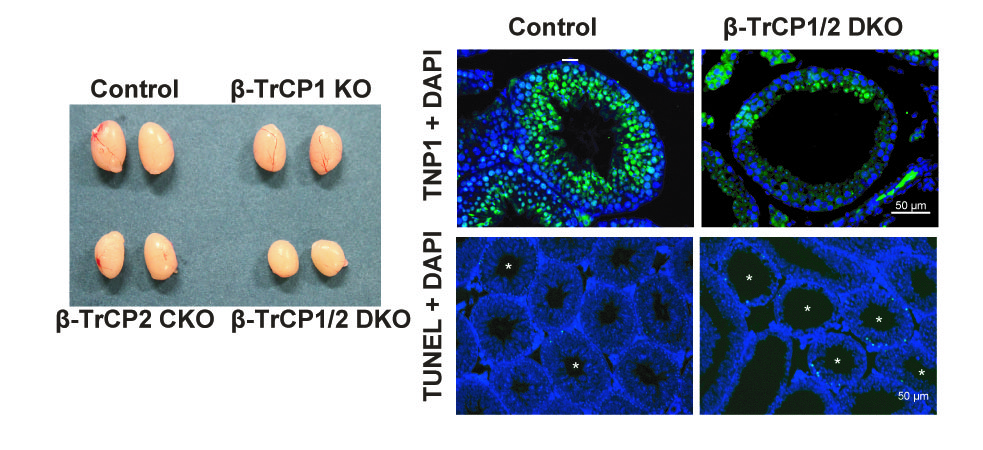
Proteolysis induces spermatogenesis.
タンパク質分解が精子形成を誘導する。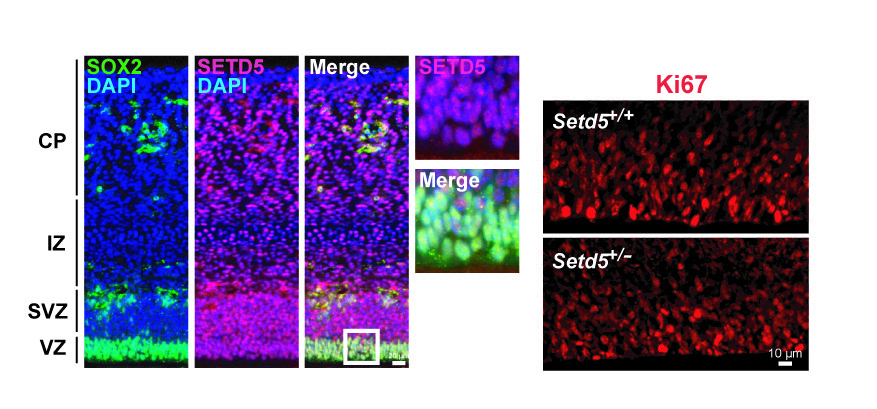
Chromatin remodeling factors regulate neuronal proliferation.
クロマチン制御による神経細胞の増殖制御。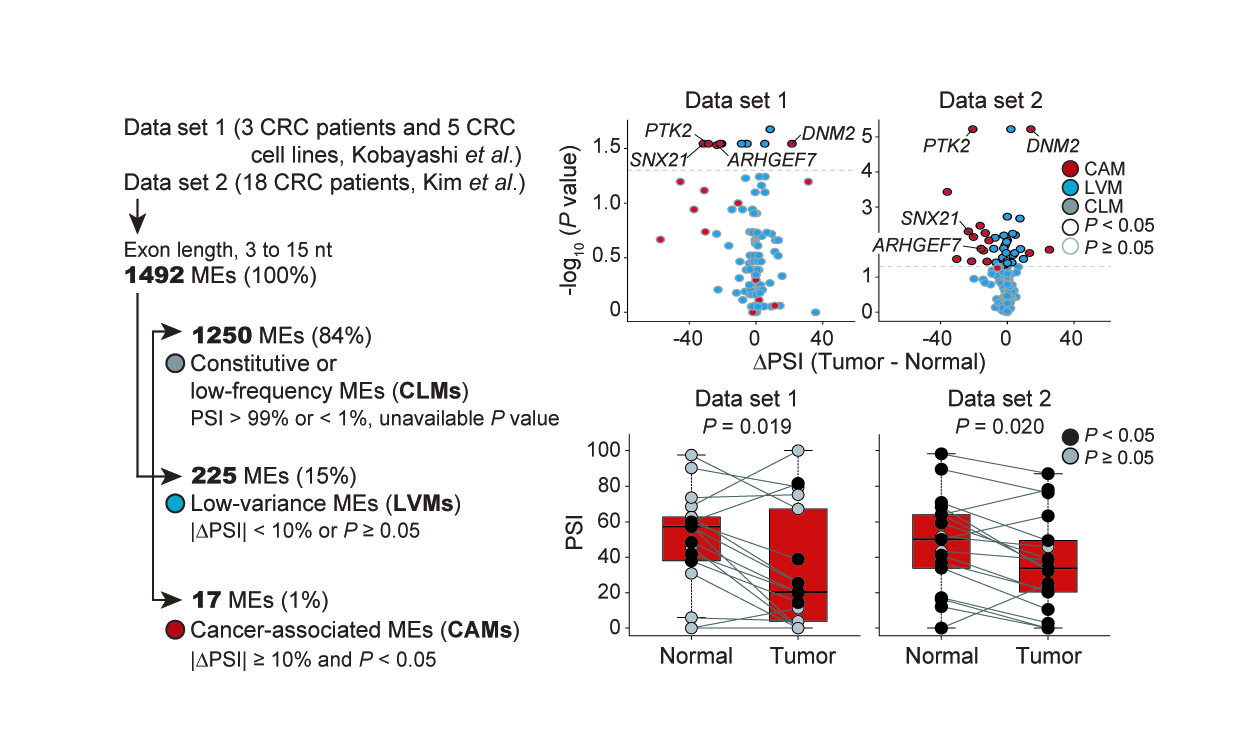
Search for exons that are expressed only in tumors
腫瘍にのみ発現しているエクソンの探索
To master the latest life science knowledge and research methods
勉強会:知識、研究手法の修得を目指して。
ARTICLE
Kashiwagi R, et al. Collagen XVII regulates tumor growth in pancreatic cancer through interaction with the tumor microenvironment. Cancer Sci, 114: 4286-4298, 2023
Nakagawa T, et al. SPT16 ubiquitylation by DCAF14-CRL4 regulates FACT binding to histones. Cell Rep, 38: 110541, 2022
Mochizuki Y, et al. Alternative microexon splicing by RBFOX2 and PTBP1 is associated with metastasis in colorectal cancer. Int J Cancer, 149: 1787-1800, 2021
Watanabe Y, et al. An Amyotrophic Lateral Sclerosis-Associated Mutant of C21ORF2 Is Stabilized by NEK1-Mediated Hyperphosphorylation and the Inability to Bind FBXO3. iScience, 23: 101491, 2020
Nakagawa T, et al. The Autism-Related Protein SETD5 Controls Neural Cell Proliferation through Epigenetic Regulation of rDNA Expression. iScience, 23: 101030, 2020

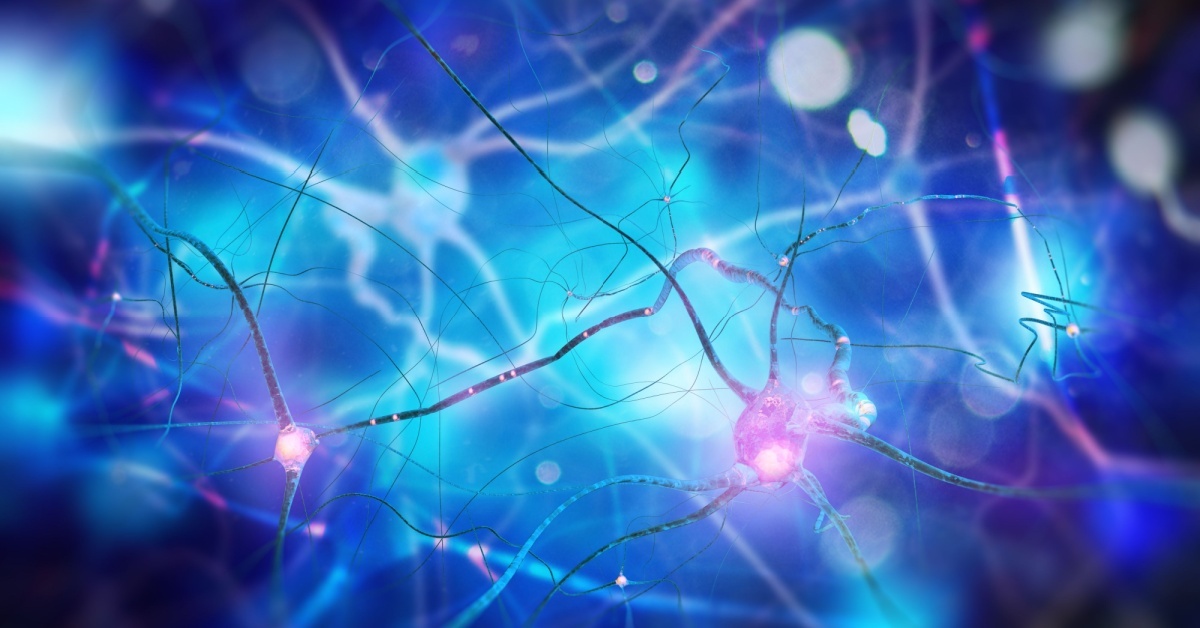 ALSの異なる原因が共通の遺伝子「UNC13A」の発現異常に収束 病気の全貌解明へ新知見
ALSの異なる原因が共通の遺伝子「UNC13A」の発現異常に収束 病気の全貌解明へ新知見
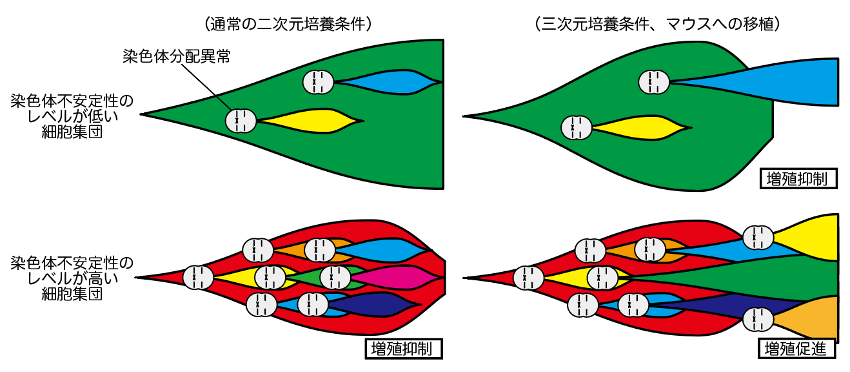 染色体不安定性はがんの増殖を促進する 「異数性パラドックス」を解き明かす
染色体不安定性はがんの増殖を促進する 「異数性パラドックス」を解き明かす